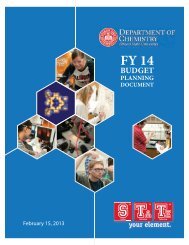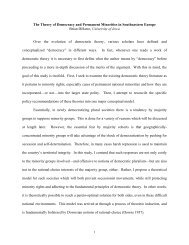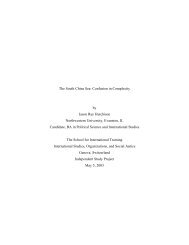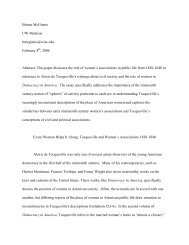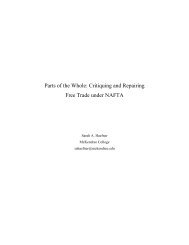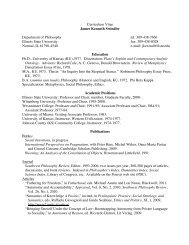1 Procedural and Substantive Conceptions of Democracy in Four ...
1 Procedural and Substantive Conceptions of Democracy in Four ...
1 Procedural and Substantive Conceptions of Democracy in Four ...
You also want an ePaper? Increase the reach of your titles
YUMPU automatically turns print PDFs into web optimized ePapers that Google loves.
across contexts. In other words, the factors that predict procedural conceptions <strong>of</strong> democracy <strong>in</strong> one<br />
context may not predict them <strong>in</strong> another context. Because the four areas we focus on here differ along a<br />
wide variety <strong>of</strong> dimensions, our expectations regard<strong>in</strong>g each type <strong>of</strong> effect are necessarily speculative.<br />
It is also possible that vary<strong>in</strong>g economic <strong>and</strong> political conditions across populations could<br />
differentially affect average conceptions <strong>of</strong> democracy. The previous literature widely demonstrates that<br />
predictors for democracy vary across countries (Fish 2002; Fattah 2006; Ciftci 2010 etc.). This would<br />
imply that different groups might be more or less likely to base their reported support for democracy on<br />
projection or knowledge. In the cases <strong>of</strong> Palest<strong>in</strong>e <strong>and</strong> Algeria, at the time <strong>of</strong> the survey, democratic<br />
elections had been recently held that were widely considered to be free <strong>and</strong> fair (<strong>in</strong> 2006 <strong>in</strong> Palest<strong>in</strong>e <strong>and</strong><br />
1991 <strong>and</strong> 1992 <strong>in</strong> Algeria) but that were nevertheless ab<strong>and</strong>oned by <strong>in</strong>cumbent powers when the religious<br />
party was predicted to w<strong>in</strong> . It is possible that with<strong>in</strong> these populations, more religious respondents (who<br />
supported those parties) would be more likely to chose procedural elements over substantive options<br />
because their desire is for the procedural elements that would have allowed religious parties to participate<br />
<strong>in</strong> government.<br />
S<strong>in</strong>ce respondents <strong>in</strong> Lebanon have experienced some form <strong>of</strong> representative government their<br />
op<strong>in</strong>ion <strong>of</strong> the efficacy <strong>of</strong> this government likely affects whether they view procedural elements to be<br />
essential to democracy. If they view their unique representative structure as largely corrupt they may be<br />
more likely to po<strong>in</strong>t to substantive outcomes as essential to democracy. However, s<strong>in</strong>ce Lebanese <strong>and</strong><br />
Jordanian respondents are on average better <strong>of</strong>f than respondents <strong>in</strong> Algeria <strong>and</strong> Palest<strong>in</strong>e, it is possible<br />
that they will not be as concerned with provision <strong>of</strong> basic necessities <strong>and</strong> therefore conceive <strong>of</strong> democracy<br />
<strong>in</strong> more procedural terms. On the other h<strong>and</strong>, literacy rates are higher <strong>in</strong> Palest<strong>in</strong>e, Lebanon <strong>and</strong> Jordan<br />
than <strong>in</strong> Algeria, <strong>in</strong>dicat<strong>in</strong>g that <strong>in</strong>dividuals <strong>in</strong> those populations might be somewhat more likely to value<br />
procedural elements.<br />
<strong>Procedural</strong> Underst<strong>and</strong><strong>in</strong>gs <strong>of</strong> <strong>Democracy</strong> <strong>in</strong> Arab World<br />
Our analysis uses the public op<strong>in</strong>ion data collected dur<strong>in</strong>g the first wave <strong>of</strong> the Arab Barometer<br />
Survey (2006-2008). The analysis that follows is based on respondents who provided usable responses to<br />
13



